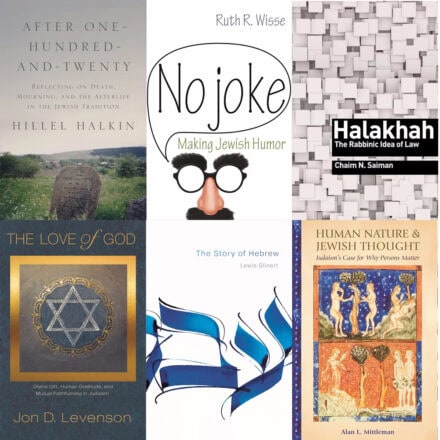
Library of Jewish Ideas
The Library of Jewish Ideas is a book series sponsored by the Tikvah Fund in collaboration with Princeton University Press. The purpose of this multi-volume series is to present concise, engaging, and authoritative treatments of core Jewish concepts in a form that will be at once useful to students, of interest to professionals, and appealing to general readers who are curious about what Judaism has to say in key areas of human thought and experience.
To date, the Library of Jewish Ideas has published seven books:
- Halakhah: The Rabbinic Idea of Law Chaim N. Saiman
- The Story of Hebrew Lewis Glinert
- Inheriting Abraham: The Legacy of the Patriarch in Judaism, Christianity, and Islam Jon D. Levenson, Harvard University
- No Joke: Making Jewish Humor
Ruth R. Wisse, The Tikvah Fund and Harvard University - Human Nature & Jewish Thought: Judaism’s Case for Why Persons Matter
Alan L. Mittleman, Jewish Theological Seminary - The Love of God: Divine Gift, Human Gratitude, and Mutual Faithfulness in Judaism
Jon D. Levenson, Harvard University - After One-Hundred-and-Twenty: Reflecting on Death, Mourning, and the Afterlife in the Jewish Tradition
Hillel Halkin
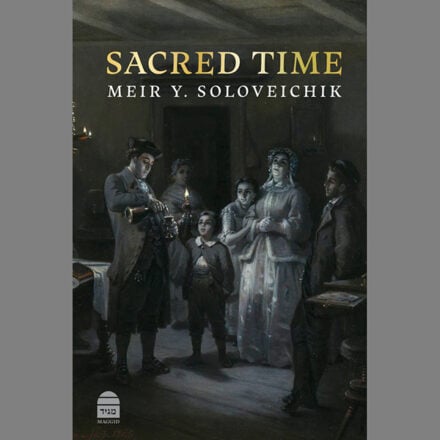
Sacred Time
by Rabbi Meir Soloveichik
Meir Soloveichik begins this work with a sweeping statement: The Jewish calendar is a key that unlocks the very essence of Judaism. He contends that the secret of Jewish endurance is Sacred Time, that we find holiness not just in spaces but in time itself. Through its Calendar Rabbi Soloveichik suggests, Judaism developed a very particular philosophy of memory – indeed, an ethics of memory. In this full color edition, Rabbi Soloveitchik explores the calendar to reveal the holiness that underpins the Jewish experience and assures the Jewish people’s eternity.
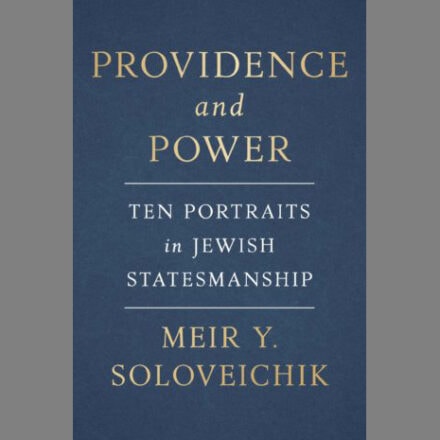
Providence and Power: Ten Portraits in Jewish Statesmanship
by Rabbi Meir Soloveichik
Ever since Plato’s Republic, the study of statecraft has been a staple of Western discourse, and so has the study of particular leaders. Although Jewish scholars, thinkers, and popularizers have contributed notably to this genre, strikingly few have turned their attention to the history of Jewish leaders—that is, leaders specifically of the Jewish people—in particular.
And yet there has been no lack of such outstanding figures, from the biblical period of Jewish sovereignty in the Holy Land and once again in present-day Israel or during the millennia of exile and formal Jewish statelessness in the Diaspora. This book, devoted to ten of the most colorful, fascinating, and consequential Jewish political leaders over the past three millennia, fills the gap.
Among the ten, men and women alike, some were firmly bound to Judaic religious teachings and others less so, but guiding all of them was the fixed lodestar of their own Jewish identity. By the mid-20th century, the legacy of past generations would inspire modern successors bent on the re-founding of the sovereign Jewish state, one of the greatest political feats in human history.
In delving into the unique circumstances and predicaments faced by these ten, and into the characteristics that mark them and their statesmanship as specifically Jewish, readers will also become familiar with what Jewish tradition has to say about the demands of statesmanship and, by inference, with the qualities needed by successful Jewish political leaders encountering the challenges of today and tomorrow.
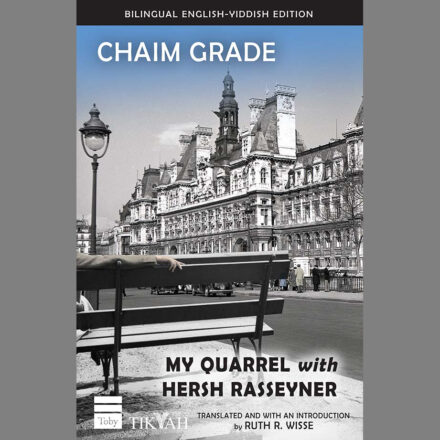
My Quarrel with Hersh Rasseyner
by Chaim Grade, translated and with an introduction by Ruth R. Wisse
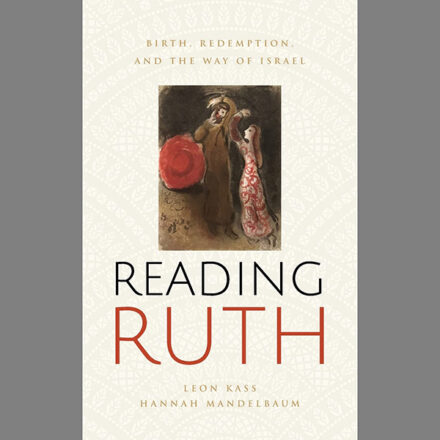
Reading Ruth: Birth, Redemption, and the Way of Israel
by Leon Kass and Hannah Mandelbaum
Through close reading and responsive commentary, Reading Ruth: Birth, Redemption, and the Way of Israel vivifies this much-loved biblical text, enabling readers to imagine how a widowed woman from an alien nation becomes the ancestress of the greatest Israelite king.
As the authors (granddaughter and grandfather) also show, the Book of Ruth is about much more than the Cinderella-like rise of a woman from misery to glory. Ruth’s story sheds light on certain enduring questions of human life, and on the Hebrew Bible’s answers to those questions: the meaning of national membership and identity; the nature and limits of female friendship, marital love, and familial obligations; the importance of attachment to the land; and, especially, the redemptive powers for human life of childbirth, loving-kindness, and loyal devotion.